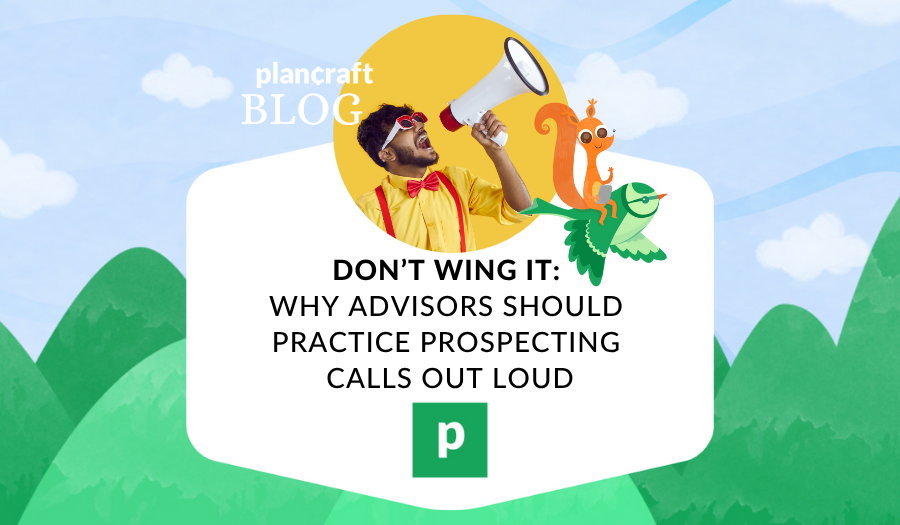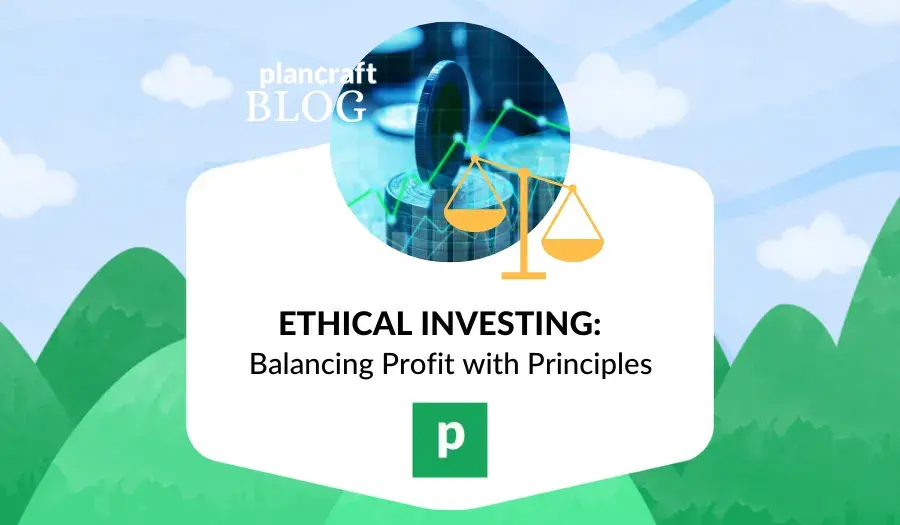You know that moment when you're about to call a prospect and your brain suddenly turns into static? You've rehearsed the pitch, internalized the script, maybe even visualized the conversation going well. Then someone answers and your mouth says something weird like, “Hi this is uh me from Plans...well?”
It's a mess. And it happens to smart people. The problem usually isn’t lack of preparation. It’s lack of real, out-loud practice.
Thinking about a script is not the same as speaking one
Financial advisors are knowledge-heavy professionals. You spend your day juggling retirement goals, insurance gaps, market anxieties, estate hypotheticals, and yes, feelings. You are good at solving problems.
But talking through those problems in real time with a stranger who doesn’t yet trust you? That’s an entirely different skill set. It’s why the script that felt tight in your head turns clunky in your mouth. There’s no autopilot setting for nuance. You have to build that fluency by saying things out loud, awkward pauses, messy rephrases, cringey over-explanations and all.
What actually happens when you speak it aloud
Practicing out loud lets you hear your own hiccups. You start to catch that moment when your tone doesn’t match your words. You hear that accidental uptick in your voice that makes everything sound like a question. You realize you say “perfect” way too often or that you pivot to numbers too soon.
Better yet, it forces you to adjust in real time. You stumble, correct, try again. You find your natural rhythm. That’s where confidence lives, not in memorization, but in the muscle memory of navigating a conversation.
Real-world conversations aren’t linear
Let’s be honest. Prospects don’t follow the script. They interrupt. They ask random questions halfway through your setup. They tell you they already have an advisor or that they’re busy feeding their dog. If you’ve only rehearsed Plan A, you’ll be stuck.
But if you’ve practiced adapting, you’ll be fine. The only way to get there is reps. Real reps. Spoken ones.
Want to get better faster? Add pressure
Recording yourself works, but it’s not enough. Try this:
-
Pair up with another advisor. Switch roles. One of you plays the skeptical prospect, the other tries to earn a second call. Then switch. Be ruthless, be real. You’ll both improve.
-
Practice in weird places. On a walk. In the car. While folding laundry. If you can sound clear under distraction, you’ll be laser-sharp when focused.
-
Use a mirror. Or don’t. The point is to build the muscle, not stage a TED Talk.
Training tools help, but they’re only as good as your effort
There are dozens of roleplay and call training tools out there, but nothing replaces consistency. One-off sessions don’t change much. Regular, messy, honest practice does.
What makes the biggest difference is accountability. Having a place to show up weekly. Somewhere to be a little off so you can get sharper. A group that doesn’t pretend but actually practices.
So what’s the takeaway here?
Every advisor wants more productive calls. But if you're not practicing out loud, you're leaving results on the table. The people you’re trying to help don’t just want expertise. They want clarity. Confidence. Connection. You can’t outsource that to a template.
Talking is a skill. The better you get at it, the more trust you build. And that’s the foundation for everything else.
What we’re doing about it at Planswell
We know this kind of practice works, so we’ve built a few ways to help advisors level up.
First, our AI Practice Caller lets you rehearse real conversations with simulated households. You pick the difficulty level. The AI throws objections. You practice handling them out loud and now you even get feedback after the call.
Second, we host a live weekly session called Dialed In with Andy. No formal agenda. Just real advisors practicing real calls, handling curveballs, and learning on the spot. Bring your questions, your awkward phrasing, your best (or worst) openers. We’re all sharpening together.
If you're already a partner, dig in. If you're not, take what you can from this post and try it on your own. Because the one thing we know for sure? The advisors who sound the best aren’t winging it. They’ve just practiced more.









